Meniere’s Disease
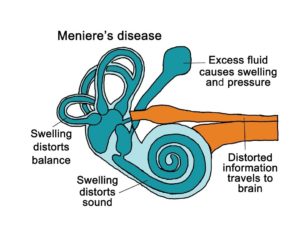
Meniere’s disease, maybe you’ve heard of it, maybe you have it, but what is it?
A disease of the inner ear, Meniere’s specifically affects the snail-looking structure called the cochlea (the blue structure in the figure below). The cochlea plays a large role in our balance and transmitting sound into electrical signals the brain can understand. Meniere’s affects roughly 600 people out of every 100,000; 80% of which only have it in 1 ear. Although, it can eventually move to the other ear. Yet even with so many people having it, there is still much unknown about this disease.
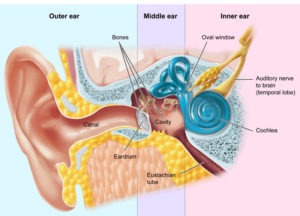
Causes
As mentioned above, we still don’t know much about Meniere’s, especially what causes it. Professionals suggest there are 4 possible causes:
- A build-up of endolymphatic fluid (fluid of the inner ear that creates the electrical signals)
- An autoimmune disease
- A viral infection
- Genetics
- Or a combination of the above
Although we aren’t certain, there are theories that support each of these possible causes.
Symptoms
Because of the organ it affects, the cochlea, Meniere’s has 3 very distinct symptoms that appear in unpredictable episodes. 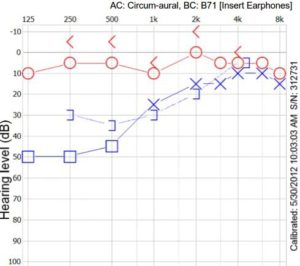
- Episodic hearing loss – usually with a low-frequency loss
- Vertigo
- Roaring Tinnitus
- Sometimes also accompanied by a feeling of fullness in the ear
These symptoms can occur together or separately. Episodes of Meniere’s can last for a few hours, days, or months and seem to happen at random. Although, some individuals with Meniere’s can feel an episode coming on.
Treatment
The treatment protocol for each patient with Meniere’s is going to vary based on the severity of their symptoms. But here are some that might be suggested.
- Medications for fluid buildup, dizziness, and anxiety
- Changes to diet – low salt, caffeine, and alcohol
- Vestibular therapy
- Hearing aids for episodes of hearing loss and tinnitus
- Oral Steroids – which would suggest an autoimmune disease
- Endolymphatic shunt to drain the excess fluid
- Gentonycin injections specifically to kill the balance cells to alleviate the Meniere’s effects
- Vestibular antrectomy – removing the balance portion of the vestibular system (very new)
Although there is no cure, there are still ways to manage the symptoms when an episode occurs or to help prevent them. Each year, new research is being done into treatment and medications that can help those with Meniere’s disease.
If you or someone you know has Meniere’s remember, there is help and hope.
For another explanation of Meniere’s check out Dr. Cliff’s video on the subject.
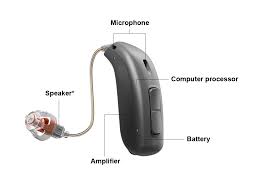
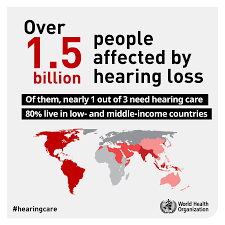
Recent Comments